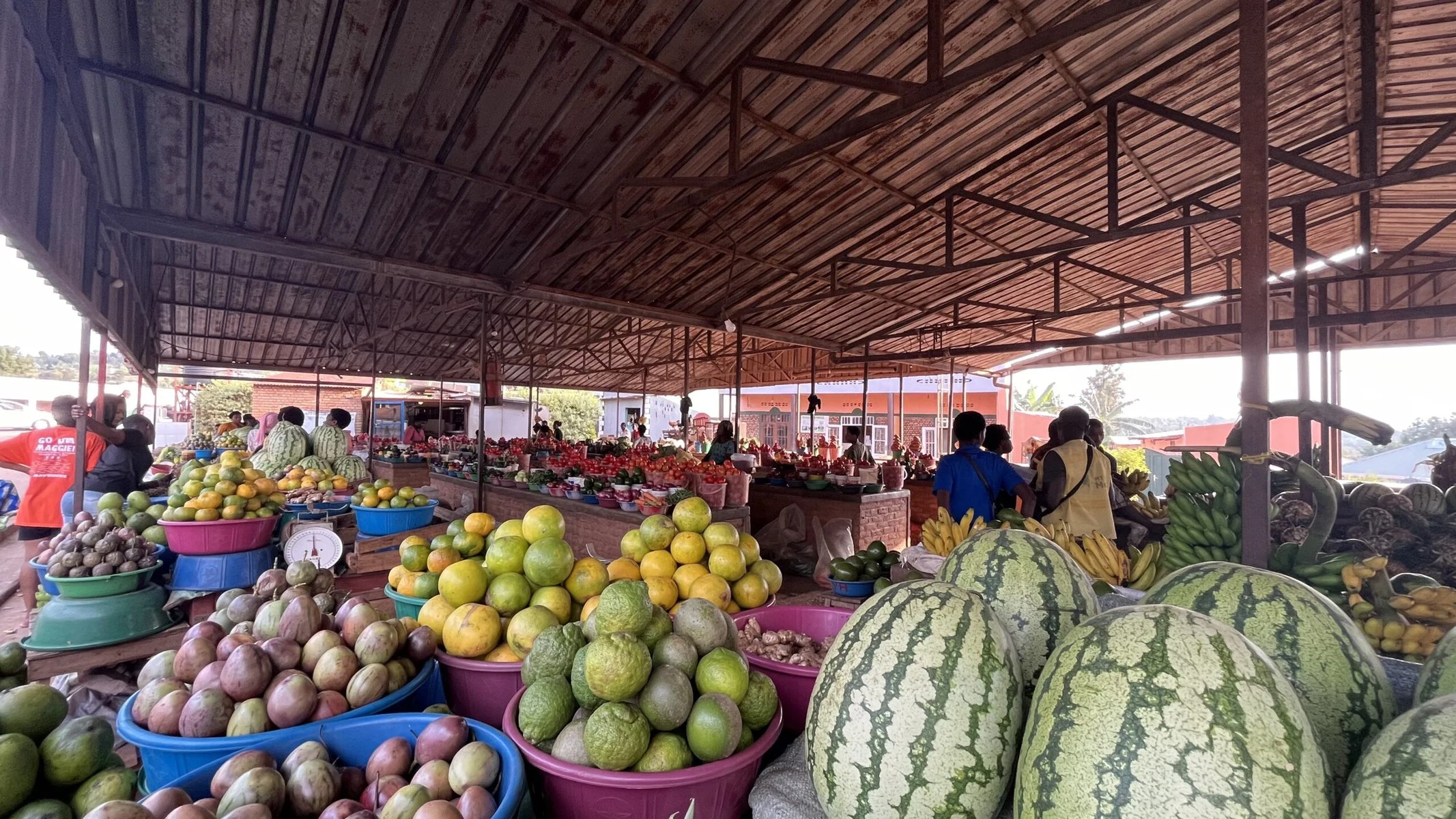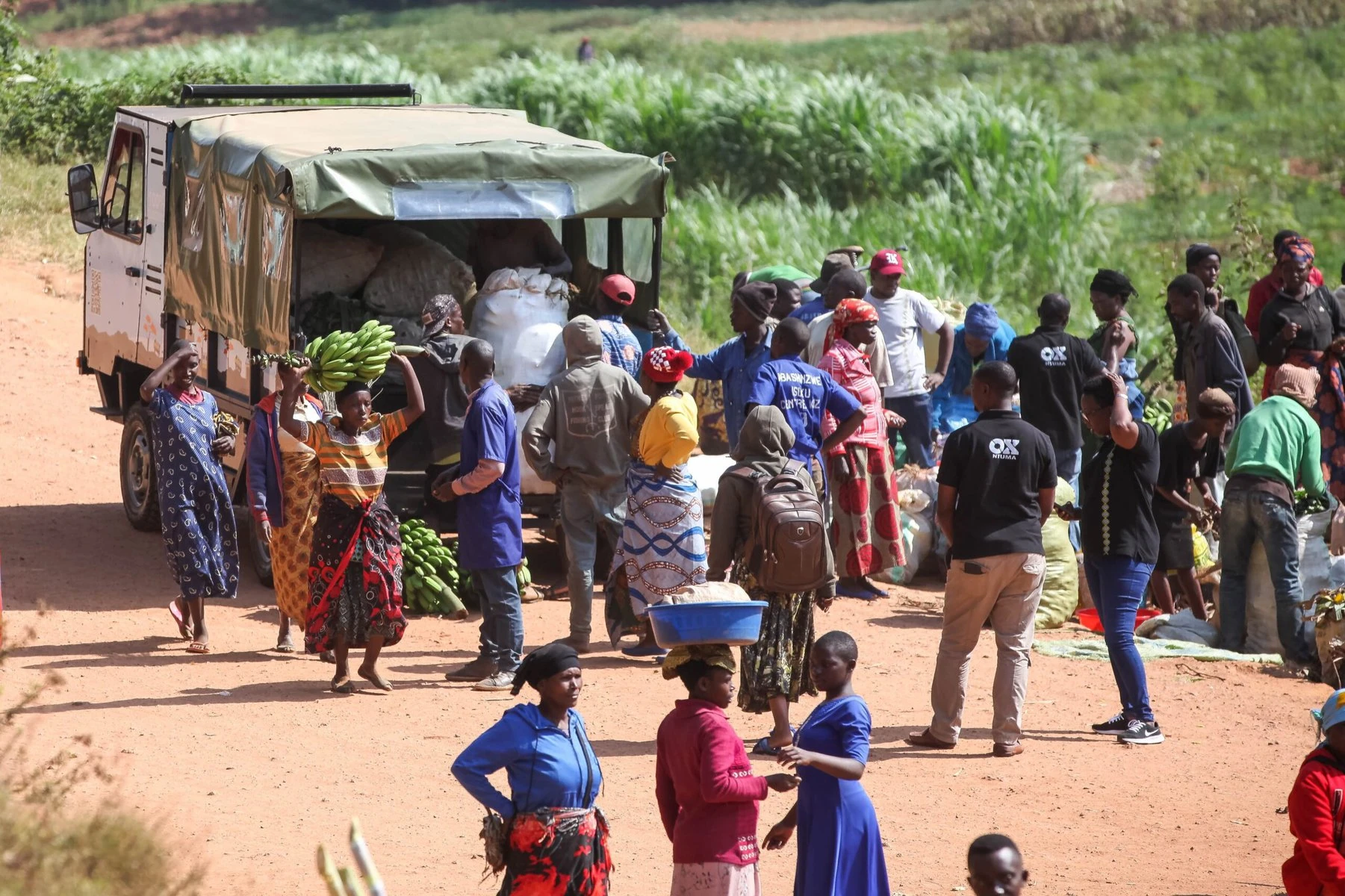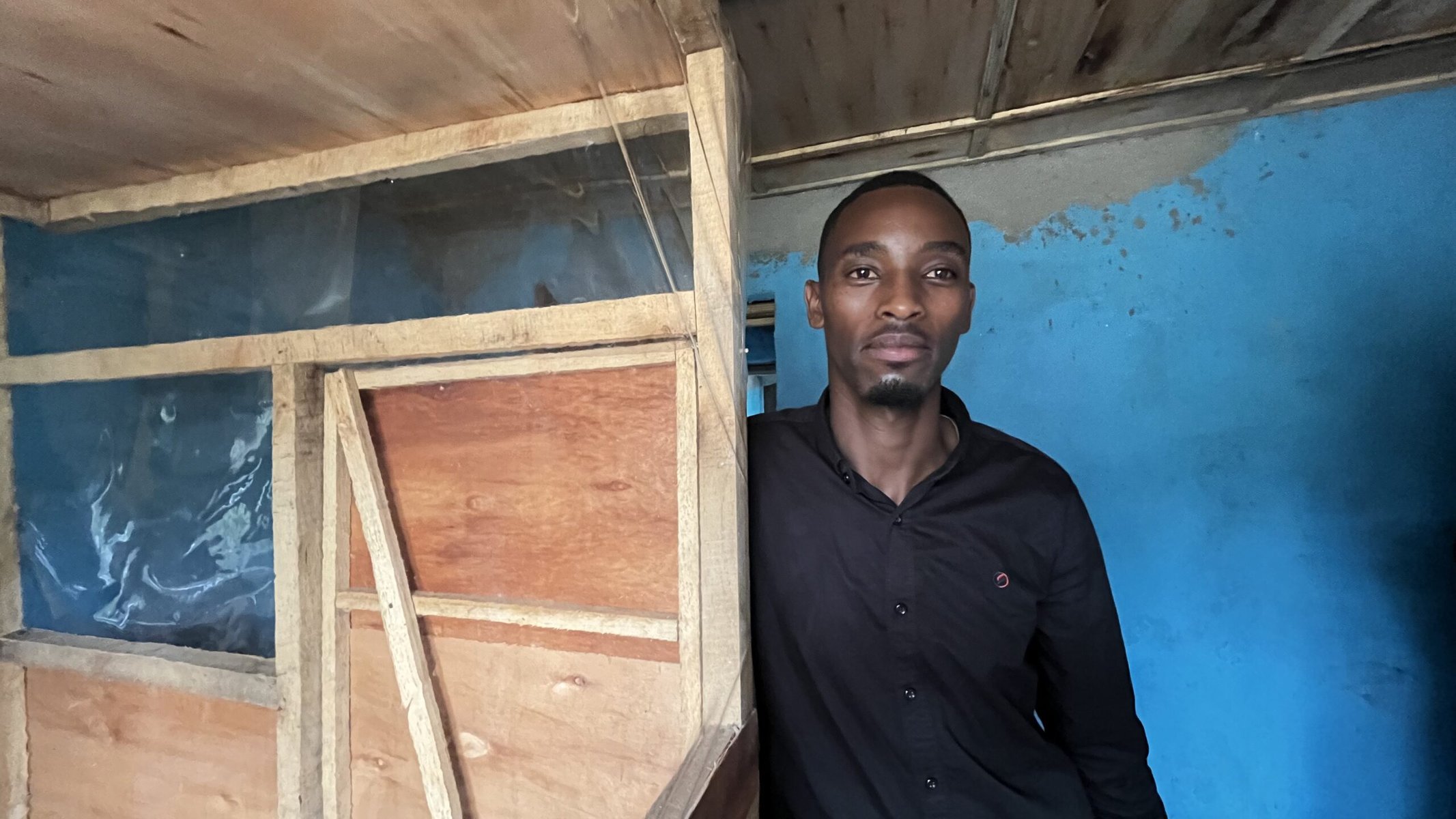Esperance Dushakimana looks at her field of potato in Musanze district in North Rwanda. “It is hard,” she says. “We till the land, sow the seeds, reap the harvest and then watch helplessly while at least a fifth of it perishes before it reaches the market.” Barely 30 miles away in Rubavu, mushroom farmer Vincent Ngamije is forced to sell his harvest on the cheap across the border in Congo, instead of in Kigali, Rwanda’s capital, where he can get a better price. “The market in DRC is barely 40 minutes away, and in contrast, my mushrooms can reach Kigali only after spending five hours in a warm truck,” he says. “Barely 40 percent will survive.”
In Rwanda’s agrarian, undulating landscape, farmers pedaling up or madly careening down hills, on bicycles piled four feet high with bananas, potatoes and other produce, are a common sight. Like Dushakimana and Ngamije, most farmers here either watch their harvest spoil, or grow only as much as they can get to market. The issue is global: About 25 to 30 percent of food produced worldwide is wasted. The Food and Agricultural Organization (FAO) estimates that every year, about USD $400 billion worth of food is lost before it ever reaches the market. But in Rwanda, where over 4.8 million people (41 percent of the population) are undernourished and approximately one-fifth of the population is food insecure, food waste seems even more wasteful.
Better logistics is an obvious solution, but it is not as simple as that. Long-haul diesel trucks have a massive carbon footprint; the US Environmental Protection Agency estimates that in 2022 more than three percent of all carbon dioxide (CO2) emissions came from them.
“Traditional car manufacturers have failed to produce vehicles that suit a third of the world’s population, predominantly those in the Global South,” says Simon Davis. He is the founder and CEO of the UK-based Ox Delivers, which has developed, according to the company website, “the world’s first purpose-designed electric truck” for Africa. It was launched in Rwanda in 2021 and is almost 10 times cheaper to run compared to existing alternatives. And it offers farmers the cost-effective choice of renting the space they need for as little as a dollar depending on weight and distance, instead of the entire truck (for about $500), to transport their agricultural produce from farm to market. Refrigeration capacity can be added to all these trucks (in fact “cold” trucks service Rwanda’s dairy farmers in Kivu, Western Rwanda) and the company has also developed a mountable cool box for non-refrigerated trucks.

The story of Ox began in 2013, when Sir Torquil Norman, the British pilot and toy entrepreneur famous for creating the Polly Pocket line of dolls, tasked the Formula 1 race car designer Gordon Murray to design a vehicle to transport goods in low-income countries. Murray’s design — a somewhat squat truck made of interchangeable and easy-to-maintain parts that could be shipped in easy-to-assemble flatpacks — was practical, even if unlikely to win any auto beauty contests. In the next few years, Ox transformed into a logistics company, offering farmers “ride shares” for their produce for less than a dollar.
These ride shares, which Davis claims have been used to transport everything from “cows to coffins,” have positively boosted farmers’ bottom lines and supercharged African trade. “My observation of the market is that actually the biggest problem isn’t food waste,” Davis says. “There is food that [farmers] never bother to grow, because it’s just not going to get to the end.” Thus far, the company has serviced over 4,000 customers, ranging from smallholder farmers and traders to large tea companies.
Weighed down by negative news?
Our smart, bright, weekly newsletter is the uplift you’ve been looking for.
With its recognizable branding and fleet of drivers — some of them, unusually for Rwanda, young women — the truck has been attracting attention, especially when it drops its payload in local markets. “People see our truck, the Ox truck, they always crowd around and ask where has this truck come from?” Muhoracyeye Lea, an Ox truck driver as well as manager of Ox Delivers’ Kigali Depot, says. “They are even more interested when they see how we look after the cargo, keep it at the correct temperature. We talk to them, and this helps us to get new, different customers.”
The reduced spoilage of harvests and the convenient logistics have encouraged some of their customers to grow more and sell more.

In Kyazo, a fertile agricultural area in Rwanda’s Western Province, Jean Paul grows chili peppers. Until a couple of years ago, reaching Kigali was a logistical nightmare: He would load 100-kilo sacks of peppers onto three bicycles, push them to the nearest town, then haul them to the roof of a bus for a seven-hour journey to Kigali bus station. From here, he transferred the peppers to three motorbikes for delivery to the warehouse. This entire backbreaking process took two days. In 2021, when he began renting space in an Ox truck, the improved access to the market encouraged him to grow more. Today, he has gone from selling 400 to 4,000 kilograms of peppers a week to an exporter in Kigali, about 105 miles away.
Claudine Uwiragiye has a similar story. Initially she joined hands with four other farmers to send their combined cassava harvest of two metric tons to the market in a single Ox truck. The financial benefits of directly accessing the market without middlemen made her confident of growing more. “Now I can order up to two trucks of 1.5 [metric tons] twice a week on Monday and Thursday, which means that I can sell up to 3 [metric tons] of cassava a week,” she says.

Eighty percent of their orders come from existing clients, Lea says, adding that once they have experienced the benefits of good logistics, “the customers call again and again!” While this is great news for Ox, which is consolidating its business in Rwanda, researchers point out that a lot more needs to be done before sustainable logistics companies can become a holistic solution to Rwanda’s food waste problem.
At the Africa Centre of Excellence for Sustainable Cooling and Cold Chain (ACES) campus in Kigali, food systems expert and senior lecturer Jean Baptiste Ndahetuye talks about the pitfalls of narrowly focusing on sustainable logistics, instead of seeing it as part of a system of best practices that optimize food production. “Sustainable cold transport is important,” he points out, “but only one link in this chain.” Davis says that for their present roster of 2,000-plus clients in Rwanda, “the cold chain is not something that’s even halfway there.”
Climate change-linked erratic weather conditions are not helping. In Rubavu, Ngamije returns from Goma, the market in Congo where he sells his mushroom crop. “It has been unusually hot here and without a cool chamber, my harvest starts losing color and texture immediately,” he says. “And by the time I reached Goma in a non-AC vehicle, the mushrooms were in bad shape.” The young farmer has been experimenting with designs for a zero-input cool chamber in his spare time, which would, he hopes, keep his mushrooms fresh for at least a couple of days extra. “But transport to bigger markets in Kigali remains an issue,” he says.
With a fleet of two-dozen trucks and 47 drivers (12 of them being women), Ox Delivers has not yet managed to reach the length and breadth of Rwanda, which is barely the size of the state of Massachusetts. One reason for this is the inadequacy of public charging infrastructure beyond Kigali. While these EVs have a range of 170 kilometers, at present they need to return to the company’s docking stations to recharge.
In early 2024, Ox Delivers won a £1.2 million grant from the UK’s Energy Catalyst to develop and expand sustainable energy infrastructure in Rwanda, which could add extra buzz to their expansion plans. Spreading awareness about the benefits of using sustainable cold chain technologies could help, and this is exactly what Ndahetuye and his colleagues are doing at the ACES campus in Kigali. They have trained over 1,000 students, farmers, engineers and technicians in cold chain technologies and explored how the creation of cold chain infrastructure can generate new jobs and businesses.
“My dream is for Rwanda to develop a series of cold rooms, and for Ox trucks to connect them all,” Ferdinand Munezero, Ox Delivers’ training and development lead and alumnus of ACES, says. “It will be good for business, but also for the country.”
This project was funded by the European Journalism Centre, through the Solutions Journalism Accelerator. This program is supported by the Bill & Melinda Gates Foundation.
The post Nimble Electric Trucks Are Supercharging African Trade appeared first on Reasons to be Cheerful.




